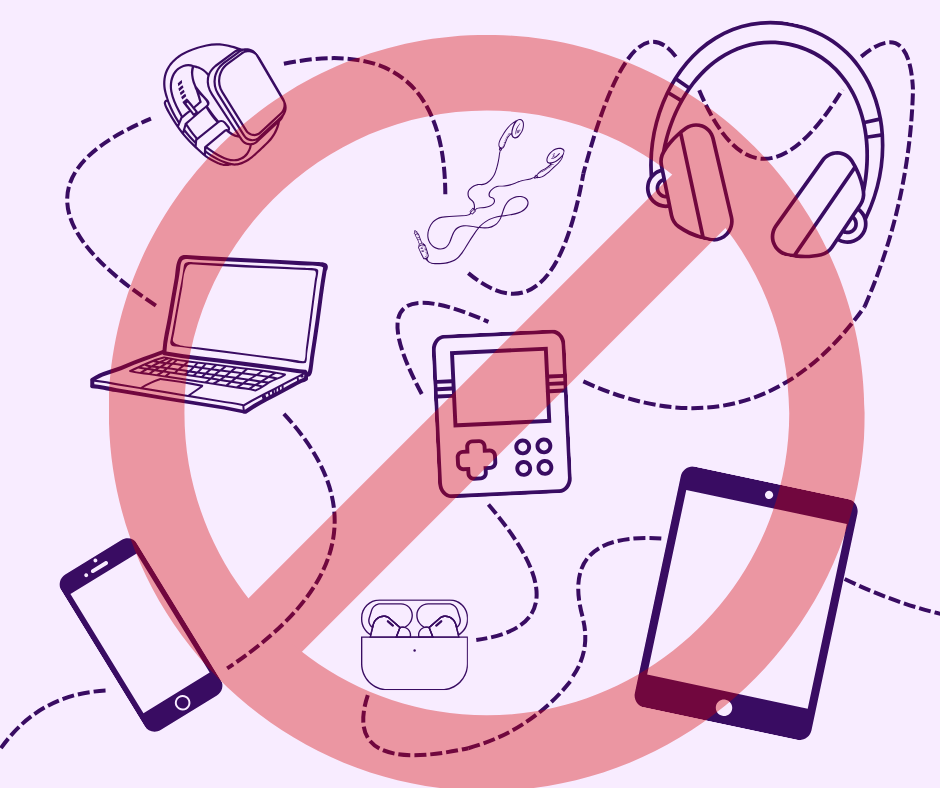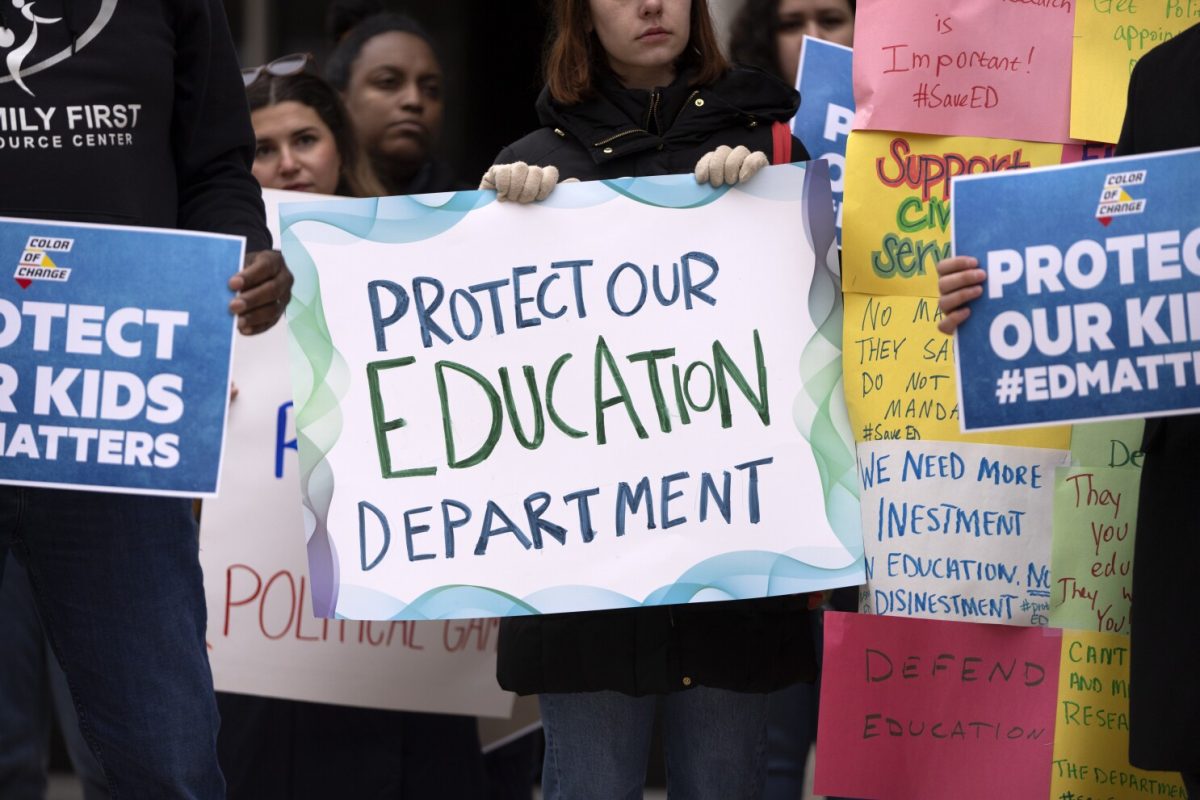Becoming a teacher is a journey fraught with challenges. Educators must navigate the teenage environment, find ways to keep students engaged, and grade assignments far beyond their paid hours. Yet, the dedication and hard work of teachers often go unrecognized. At Fremont High School, staff face numerous obstacles, many of which the public may never consider, all while working in an increasingly complex education system. With the casual use of cell phones and a growing sense of apathy among younger generations, the teaching profession has never felt more demanding.
This raises an important question: What has fueled the apparent defiance among students? Some blame cell phones, while others point to a generational disengagement from traditional educational values. However, rather than solely blaming teachers for students’ poor grades and lack of motivation, the public must also consider the influence of the home environment. Students often demonstrate a clear disinterest in their education, which likely stems more from a lack of involvement at home than simple discipline problems.
“I think a large issue facing many of our students is not having a supportive family at home,” said English teacher Stacey Smith. “When kids do not have people at home that they can go to and talk about their day, that is a problem. When parents support the bad habits of their kids or even supply them with the means to participate in these behaviors, kids do not have a chance. We need parents to be role models and want more for their kids than what they have received in life. I know we have some great families in the district, but many of the kids I see on a daily basis are not having their basic needs met at home.”
Despite this, teachers are often the ones blamed for any decline in education. It is all too common for parents to scapegoat teachers when their children struggle academically.
“The criticism used to bother me, but now it doesn’t as much,” said Glenn. “The only thing I can do is educate people and bring awareness to the realities of educators. Their criticism isn’t stopping me from coming into my classroom every day and being here for my students, despite the challenges and criticism we get.”
Even when lesson plans are engaging, teachers struggle to compete with distractions like social media. Unfortunately, for some students, nothing taught in the classroom will ever be more important than those who just liked their Instagram posts.
“I think with cell phones and social media, we’re kind of living in this make-believe world,” said English and History teacher Ashley Bignell. “We’re losing some social interaction and some social skills as well. In the classroom, I think phones can be great for a specific planned activity or tool. Technology is great when you’re using it productively, but it’s really hard to get through to students when they can’t put that cell phone down.”
Despite these obvious distractions, teachers remain accountable. The phrase “just in it for the money” is often misapplied when directed at educators. Teachers don’t work for a paycheck; they are driven by a passion for their students. However, earning a higher wage in education often means increasing one’s own education, sometimes spending thousands of dollars to earn a doctorate. Most teachers are committed to doing what’s best for their students, but empathy is often required in a way that isn’t always written into the job description. Society is tightening standards while ignoring others. School is no longer viewed as a place to learn and grow; students now often treat it as just another part of daily life.
“When society allows things to happen, what do you think is gonna happen?” said art teacher Mara Horning. “The kids think it’s okay. It’s not their fault; they’re the kids. The adults could rein it in.”
Behaviors spread rapidly among students, leading to a heavier workload for teachers. These additional responsibilities sometimes involve duties like supervising bathrooms to ensure student safety due to the rise of vaping and other distractions.
“I believe teachers need more support, more time, and more (and better) parental involvement,” said Shea Ahrons. “Teachers need to be supported by administration when there are problem behaviors, and these behaviors need to be handled consistently and with fidelity. Teachers also need more time to plan, grade, and organize. We are asked to do a lot that physically cannot be done during our 88-minute plan periods. Finally, productive parental involvement would be a game-changer. So many times, parents are quick to blame teachers when their student’s grades drop, but in the past, parents would blame their child. Parents need to understand we are here to support their students, but we cannot make their students do the work.”
“I think assignments such as bathroom or cafeteria duty are demeaning, especially for those with higher degrees,” said English teacher Justin Bigsby. “Unfortunately, most districts don’t have the financial backing to hire nonteachers to take on these assignments, so the responsibility falls on the teachers.”
Teachers come to work to teach and set students up for success. However, this is only a fraction of what they’re tasked with. Fifth block, Fremont’s version of detention, is an example of teachers volunteering their time to supervise students who need to catch up on homework or sit quietly. It is an exhausting task for teachers who already give so much of themselves.
“It leaves me exhausted sometimes,” said special education teacher Jen Ramsey. “It allows me to get to know and help a lot of kids who normally wouldn’t know me, which helps to balance it out. I have my nine-year-old dropped off here and we just ride it out.”
Despite these challenges, educators often feel unsupported and undervalued, which adds another layer to the already demanding role. Many teachers are not only tasked with the educational needs of their students but also battle against systemic issues and public misconceptions.
“I feel massively underutilized and underappreciated. I am really tired of trying to prove my worth. I am really tired of fighting with people who are trying to ban books and trying to fight the misinformation on the internet. I am tired of having to fight for support. I’m tired of trying to advocate for my position. I am tired of getting taken advantage of. I’m tired of the behaviors and trying to tell people I matter. I’m tired of paying out of pocket for school supplies and books that I don’t have money in the budget for but I need. It’s a never-ending struggle. I’m tired of being seen as a ‘purveyor of pornography’ when I’m just trying to buy books and materials that students like to read. I’m tired of being micromanaged. I’m tired of paying exorbitant amounts for health insurance. I’m tired of my position being misunderstood,” said Dana Fontaine.
The struggles faced by teachers today go far beyond the classroom. The demands placed on educators, whether through distractions, public criticism, or the overwhelming responsibility of managing an entire classroom, are compounded by systemic issues and a lack of support. While teachers are not merely vessels of knowledge, they are also pillars of emotional and academic support for their students. Unfortunately, many teachers feel underappreciated and undervalued despite their tireless efforts to guide students toward success. The reality is that teaching is not a job; it’s a lifelong contract with a side of unwanted parenting, therapy sessions, and full-time crowd control.























